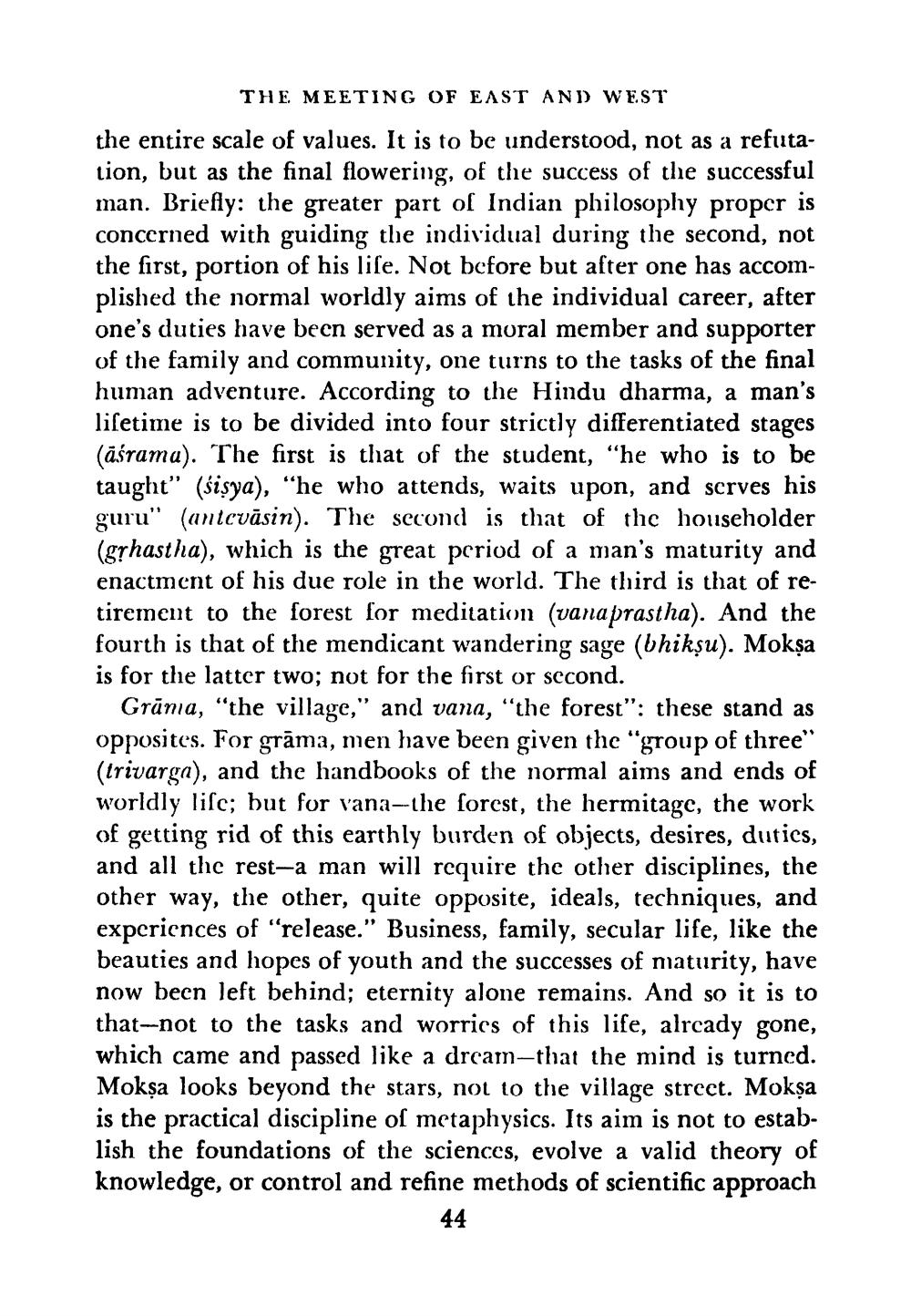________________
THE MEETING OF EAST AND WEST
the entire scale of values. It is to be understood, not as a refutation, but as the final flowering, of the success of the successful man. Briefly: the greater part of Indian philosophy proper is concerned with guiding the individual during the second, not the first, portion of his life. Not before but after one has accomplished the normal worldly aims of the individual career, after one's duties have been served as a moral member and supporter of the family and community, one turns to the tasks of the final human adventure. According to the Hindu dharma, a man's lifetime is to be divided into four strictly differentiated stages (asrama). The first is that of the student, "he who is to be taught" (sisya), "he who attends, waits upon, and serves his guru" (antevāsin). The second is that of the householder (gṛhastha), which is the great period of a man's maturity and enactment of his due role in the world. The third is that of re
tirement to the forest for meditation (vanaprastha). And the fourth is that of the mendicant wandering sage (bhiksu). Mokṣa is for the latter two; not for the first or second.
Grāma, "the village," and vana, "the forest": these stand as opposites. For grāma, men have been given the "group of three" (trivarga), and the handbooks of the normal aims and ends of worldly life; but for vana-the forest, the hermitage, the work of getting rid of this earthly burden of objects, desires, dutics, and all the rest-a man will require the other disciplines, the other way, the other, quite opposite, ideals, techniques, and experiences of "release." Business, family, secular life, like the beauties and hopes of youth and the successes of maturity, have now been left behind; eternity alone remains. And so it is to that-not to the tasks and worries of this life, already gone, which came and passed like a dream-that the mind is turned. Mokṣa looks beyond the stars, not to the village street. Mokṣa is the practical discipline of metaphysics. Its aim is not to establish the foundations of the sciences, evolve a valid theory of knowledge, or control and refine methods of scientific approach
44




